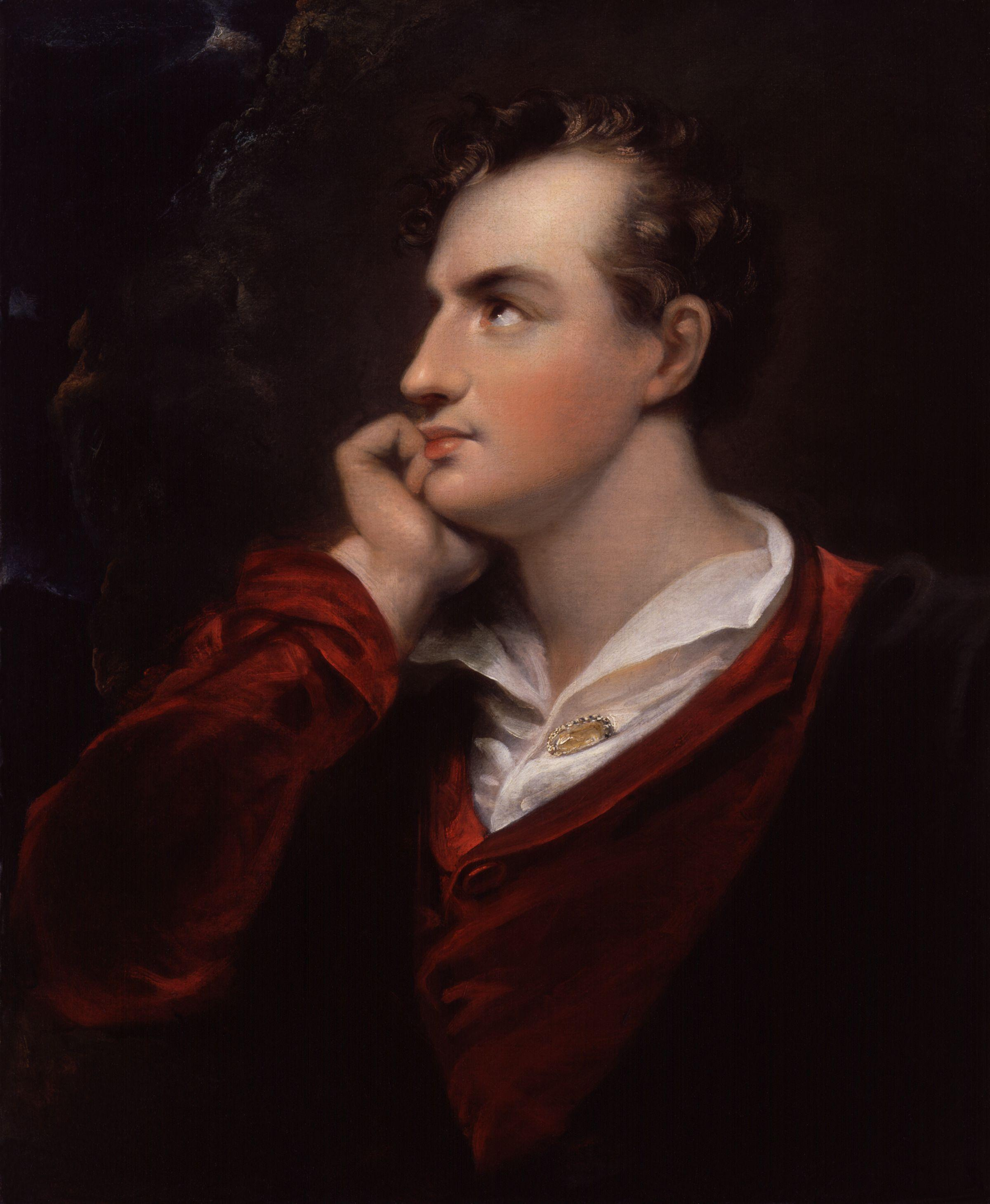
George Gordon Byron frasi celebri
Frasi sull'amore di George Gordon Byron
Origine: Da So we'll go no more a-roving, in Poesie, 1817
Origine: Citato in Tomba di Giulietta http://www.verona.com/index.cfm?Page=Guida§ion=luoghi&id=177, Notiziario BPV, numero 2, anno 1995.
Frasi sulla vita di George Gordon Byron
Don Giovanni
Origine: Citato in Elena Spagnol, Citazioni, Garzanti, 2003.
Origine: Da Il sogno, capitolo I
George Gordon Byron Frasi e Citazioni
“Il ricordo del piacere non è più piacere. Il ricordo del dolore è ancora dolore.”
Origine: Da Marin Faliero doge di Venezia
“Chi ha da fare non ha tempo per le lacrime.”
Origine: Da I due Foscari, Atto IV, Scena 1
“Oh Roma! mia patria! città dell'anima!”
IV canto
Il pellegrinaggio del giovane Aroldo
“Il "buon tempo andato"… il tempo è sempre buono quand'è andato.”
Origine: Da L'età del bronzo
“Non v'è nulla, senza dubbio, che calmi lo spirito come il rum e la vera religione.”
Origine: Citato in Focus, n. 94, p. 168.
canto IV, st. 1
Il pellegrinaggio del giovane Aroldo
“Più riposo non arreca il sonno che il piacere più non sazia.”
libro Il corsaro
Un vaso d'alabastro illuminato dall'interno
Origine: Citato in Anthony Clifford Grayling, Il significato delle cose
“Nello sport puoi scegliere tra il piacere della vittoria e il piacere della sconfitta.”
Origine: Citato in Marco Pastonesi e Giorgio Terruzzi, Palla lunga e pedalare, Dalai Editore, 1992, p. 100, ISBN 88-8598-826-2.
Origine: Citato in Kay Redfield Jamison, Toccato dal fuoco, traduzione di A. Serra, TEA, 2009, cap. 1, p. 18.
Origine: Citato in André Maurois, La prima "Lady" stregata da Byron
“Il diavolo non ha al suo arco frecce che vadano dritto al cuore più di una bella voce.”
Origine: Citato in Leggendo qua e là..., La settimana enigmistica, N. 4370, p. 4.
Un vaso d'alabastro illuminato dall'interno
Origine: Da A Thomas Moore, luglio 1817, in Pezzi domestici e altre poesie, traduzione di Cesare Dapino, Einaudi, Torino, 1986, p. 189. ISBN 88-06-59386-2
George Gordon Byron: Frasi in inglese
Canto I, Stanza 6; this can be compared to: "The bloom of young Desire and purple light of Love", Thomas Gray, The Progress of Poesy I. 3, line 16; also: "Oh, could you view the melody / Of every grace / And music of her face", Richard Lovelace, Orpheus to Beasts; "There is music in the beauty, and the silent note which Cupid strikes, far sweeter than the sound of an instrument", Thomas Browne, Religio Medici, Part ii, Section ix.
The Bride of Abydos (1813)
“The poor dog, in life the firmest friend,
The first to welcome, foremost to defend.”
Inscription on the monument of a Newfoundland dog (1808).
“Fare thee well, and if for ever
Still for ever fare thee well.”
Fare Thee Well http://readytogoebooks.com/LB-FTW46.htm, st. 1 (1816).
Contesto: Fare thee well! and if forever,
Still forever, fare thee well:
Even though unforgiving, never
'Gainst thee shall my heart rebel.
“I'll publish right or wrong:
Fools are my theme, let satire be my song.”
Origine: English Bards and Scotch Reviewers (1809), Line 5.
“For the Angel of Death spread his wings on the blast.”
The Destruction of Sennacherib, st. 3.
Hebrew Melodies (1815)
Origine: Selected Poems
“Why do they call me misanthrope? Because They hate me, not I them.”
Origine: Don Juan
